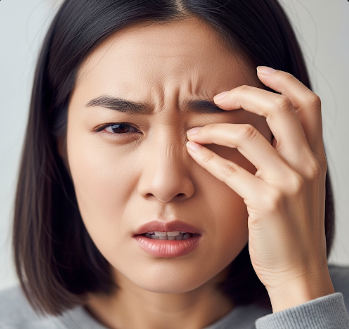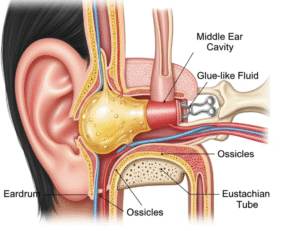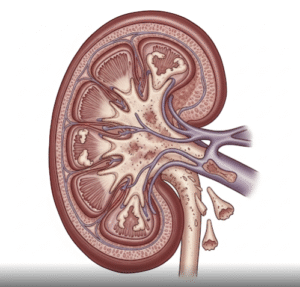➤ Overview
Twitching eyes and muscles, also known as myokymia or fasciculations, refers to involuntary, repetitive muscle contractions that can affect the eyelids, face, arms, legs, or other muscles. While often benign and temporary, persistent or severe twitching may indicate neurological, metabolic, or systemic disorders.
In South Korea, evaluation is conducted by neurologists, ophthalmologists, and primary care physicians. Diagnostic testing, including blood tests, electromyography (EMG), and imaging, helps determine the underlying cause. Early assessment is important to relieve discomfort, prevent progression, and address potential underlying conditions.
➤ Key Facts
→ Eye and muscle twitching is usually benign and self-limiting, especially when stress- or fatigue-related.
→ Common triggers include stress, lack of sleep, caffeine, and electrolyte imbalances.
→ Persistent twitching may indicate neurological disorders like Parkinson’s disease, multiple sclerosis, or peripheral neuropathy.
→ In Korea, neurological evaluation and EMG testing are widely used to identify serious causes.
→ Symptoms can affect daily activities, work, and sleep if frequent or severe.
→ Lifestyle adjustments and medical interventions can effectively reduce twitching.
→ Awareness of associated symptoms is crucial to distinguish benign from pathological twitching.
➤ What is Twitching Eyes and Muscles?
Twitching eyes and muscles involve involuntary, repetitive contractions of muscle fibers:
→ Eyelid twitching (eyelid myokymia) – Common, often triggered by fatigue or eye strain.
→ Muscle fasciculations – Visible or palpable twitches in limbs or torso.
→ Benign vs pathological – Most cases are harmless, but persistent twitching may indicate nerve or muscle disease.
→ Duration and frequency – Can be brief and sporadic or continuous over weeks or months.
→ Functional impact – Usually does not impair movement, but can cause discomfort or cosmetic concern.
→ Indicator of health – Can reflect fatigue, electrolyte imbalance, stress, or neurological disease.
➤ What Symptoms are Related to Twitching Eyes and Muscles?
Symptoms vary depending on the cause:
→ Visible muscle contractions → Twitching or fluttering of eyelids, arms, legs, or face.
→ Muscle stiffness or cramps → In some cases, associated with electrolyte imbalance.
→ Fatigue or weakness → When twitching is linked to nerve or muscle disorders.
→ Numbness or tingling → Suggests peripheral nerve involvement.
→ Stress, anxiety, or sleep disturbances → Can trigger or exacerbate twitching.
→ Headache or eye strain → Often accompanies eyelid twitching.
→ Difficulty with coordination or movement → Rare, may indicate neurological disease.
→ Rapid or frequent twitching → May interfere with daily tasks or concentration.
➤ What Causes / Possible Causes?
Twitching eyes and muscles can result from benign, lifestyle-related, or pathological causes:
→ Stress and fatigue → Most common triggers of eyelid and muscle twitching.
→ Caffeine or stimulant intake → Can exacerbate muscle excitability.
→ Electrolyte imbalances – Low calcium, magnesium, or potassium levels.
→ Dehydration – Reduces electrolyte stability, promoting fasciculations.
→ Nerve irritation or compression – Pinched nerves, neuropathy, or nerve inflammation.
→ Medication side effects – Certain drugs affecting nerve or muscle function.
→ Eye strain – Prolonged screen use or inadequate sleep.
→ Neurological disorders – Parkinson’s disease, multiple sclerosis, ALS, or peripheral neuropathies.
→ Metabolic or systemic conditions – Thyroid disorders or chronic kidney disease.
➤ When Should I See My Doctor?
Medical evaluation is recommended if twitching is:
→ Persistent for several weeks or months – Especially if not related to fatigue or stress.
→ Associated with muscle weakness, numbness, or loss of coordination – May indicate neurological disease.
→ Affecting multiple muscle groups simultaneously – Suggests systemic or neurological involvement.
→ Accompanied by facial drooping, vision changes, or speech difficulties – Requires urgent assessment.
→ Progressive or worsening – Could signal nerve or muscle pathology.
→ In Korea, neurologists and ophthalmologists perform EMG, blood tests, and imaging to identify serious causes.
➤ Care and Treatment
Treatment depends on cause and severity:
→ Lifestyle modifications → Reduce stress, improve sleep, limit caffeine, and stay hydrated.
→ Electrolyte correction → Supplements for low magnesium, potassium, or calcium.
→ Warm compresses or massage → Can relieve eyelid or localized muscle twitching.
→ Medication review → Adjust or discontinue drugs causing twitching.
→ Neurological treatment – For underlying conditions such as neuropathy or movement disorders.
→ Physical therapy – May help with muscle cramps or postural-related fasciculations.
→ Monitoring – Track frequency, duration, and associated symptoms to guide further evaluation.
➤ Treatment Options in Korea
South Korea provides advanced diagnostic and treatment options for twitching eyes and muscles:
Diagnosis in Korea
→ Electromyography (EMG) – Detects abnormal muscle activity and fasciculations.
→ Nerve conduction studies – Assess peripheral nerve function.
→ Blood tests – Check electrolytes, thyroid, kidney, and metabolic parameters.
→ Neurological examination – Evaluate reflexes, coordination, and muscle strength.
→ Imaging – MRI or CT scans if nerve compression or CNS involvement is suspected.
Medical Treatments in Korea
→ Electrolyte supplementation – Correct deficiencies causing twitching.
→ Medication adjustments – Address drug-induced fasciculations.
→ Stress management and sleep hygiene – Relaxation techniques, cognitive therapy, or behavioral interventions.
→ Neurological therapy – Targeted treatment for conditions like Parkinson’s, MS, or neuropathy.
Advanced Therapies in Korea
→ Botulinum toxin injections – For severe eyelid or facial twitching.
→ Physical and occupational therapy – Improve muscle function and prevent strain.
→ Multidisciplinary care – Neurologists, physiotherapists, and psychiatrists collaborate for complex cases.
→ Patient education – Guidance on reducing triggers, maintaining hydration, and proper ergonomics.
Rehabilitation & Support in Korea
→ Follow-up monitoring for chronic or recurrent twitching.
→ Lifestyle guidance to prevent exacerbations.
→ Support for patients with underlying neurological or systemic conditions affecting muscle control.













